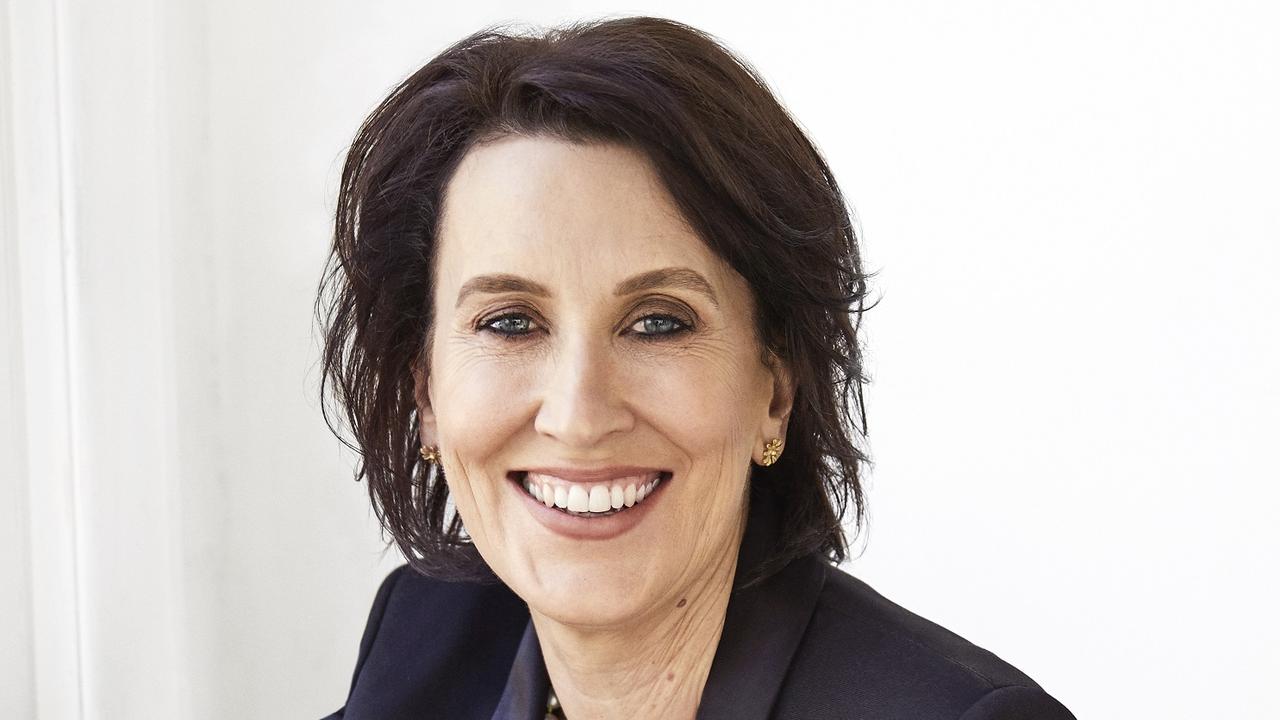Shane Watson opens up about his mental battles as a cricketer
This is the untold story of the toughest moment in Shane Watson’s life and the skills he had to develop to succeed at the highest level.

News
Don't miss out on the headlines from News. Followed categories will be added to My News.
It was the moment Shane Watson had imagined so many times. The boy from Ipswich was about to score his first Ashes Test century. He was on 95 – the nervous nineties – at the WACA in Perth in the Ashes 2010-11 series and his mind was slightly ahead of himself; he began picturing the crowd roaring as he tossed his bat, the dream moment finally here.
Fellow opener Matthew Hayden wouldn’t have been looking at the scoreboard, focusing on each ball at hand. Ricky Ponting, in at No. 3, would recite “watch the ball” three times as the bowler steamed in; by the time the red leather was soaring down the pitch, his mind was zeroed in. Michael Clarke would simply shift his target to 150.
But Watson, then aged 29, didn’t know any of that, his mind running wildly into the future as English bowler Chris Tremlett delivered the ball. It collided with his pad, angling straight to middle stump. He’d missed a straight one.
“When my mind moved forward it was a very joyous moment, but then 10 or 20 seconds later when I’m walking back to the pavilion after getting out, it wasn’t so joyous at all,” Watson, now 42, recalls.
“And that was when I started to beat myself up again that I couldn’t concentrate for long periods of time and that I’d wasted another opportunity.”

That innings was the fourth time Watson was dismissed in the 90s since he was promoted to open the batting for Australia. His maiden Test century in 2009 had come mercifully after a dropped catch on 99.
Each time he’d respond with long sessions in the nets, poring over tapes to work on his technique. But there was nothing wrong with Watson’s ability to hit the straight ones.
“In Test cricket in particular, because I’d built those big moments and those hundreds up to be as important as they are, I just didn’t have the mental discipline and control to just catch myself,” he explains. “Before you know it most of the time, I’d make a mistake.”
Watson did score an Ashes century, smashing 176 against England three years later at The Oval in Kennington. He conquered the mental battle often as one of the most successful all-rounders of all time. He debuted for Australia in a one-day international in 2002, and represented the nation 307 times, notching up four Test centuries and winning two Allan Border Medals. At the end of his international career in 2016, he was one of only seven cricketers to have scored 10,000 runs and taken 250 wickets in international cricket.
But, underneath, a lack of confidence and fear of failure nagged at him and contributed to the ebb and flow of his career, inconsistencies that led to him becoming what he describes
as the “whipping boy for the Aussie media”.
Each morning his mind would instantly fill with thoughts of cricket, the results he needed to silence the critics. Walking to get coffee, his mind would tick: “I need to score runs.” He was the king of burning mental energy.
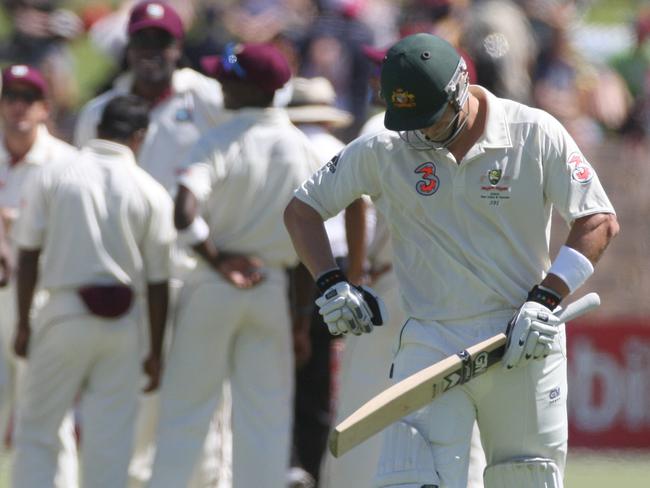
Out of 109 Test innings he was dismissed 34 times having scored between 30 and 59, fading just as he got started. But a fateful meeting in 2015 with high performance and mental skills coach Dr Jacques Dallaire flipped a switch for Watson in the twilight of his career.
He’s now dedicated much of his post-cricketing life – as a coach, commentator and author – to sharing the knowledge he feels he lacked in cricket and in life.
His book, The Winner’s Mindset, is the kind he would have devoured as a keen teen cricketer in Ipswich, west of Brisbane, dreaming of slogging Ashes centuries.
“It helped my life incredibly from a playing perspective for the last four years I played, it’s helped my life in a ridiculous way outside of my playing days and how I parent, and now I feel very fortunate to get this out to as many people as possible,” Watson says of the mindset skills, which taught him to focus on what he could control, rather than the factors he couldn’t, including results.
“I don’t know whether I would have scored more runs, but … the one thing I absolutely do know is it would’ve taken away so much stress, anxiety, worry that I just burdened myself (with) – this big weight I kept putting on my shoulders that just compounded and got worse and worse.
“It would’ve shifted things so significantly, and that’s the joy I get coaching this now. It’s not so much getting better results consistently, it’s actually when things don’t go exactly to plan and they are able to navigate through it easier … without actually digging that really deep hole.”
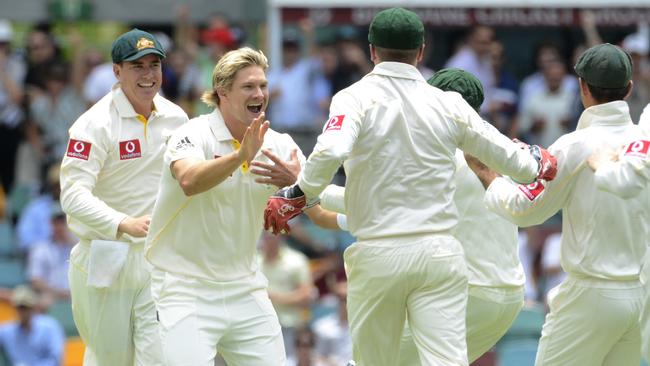
Watson first published The Winner’s Mindset in November 2022, and it gathered so much steam a second version is being released on January 31 through powerhouse publishers, Harper Collins. The new edition includes case studies from cricketing greats – Ponting, Hayden and Clarke, Glenn McGrath, Allan Border and Brett Lee – which Watson gleaned through his successful podcast, Lessons Learnt with the Greats.
“I knew I was writing a book as well and there might be a way to integrate some of that gold information that you don’t get unless you sit down with that individual and ask them, which I never did – which is madness – when I played with them. Everyone always talked about technique,” Watson says. “Some people just naturally have discovered a way to get through those situations and they do it incredibly well and it looks incredibly easy. But most people don’t develop those skills. Cricket is a starting point, but that’s in human beings in general.”
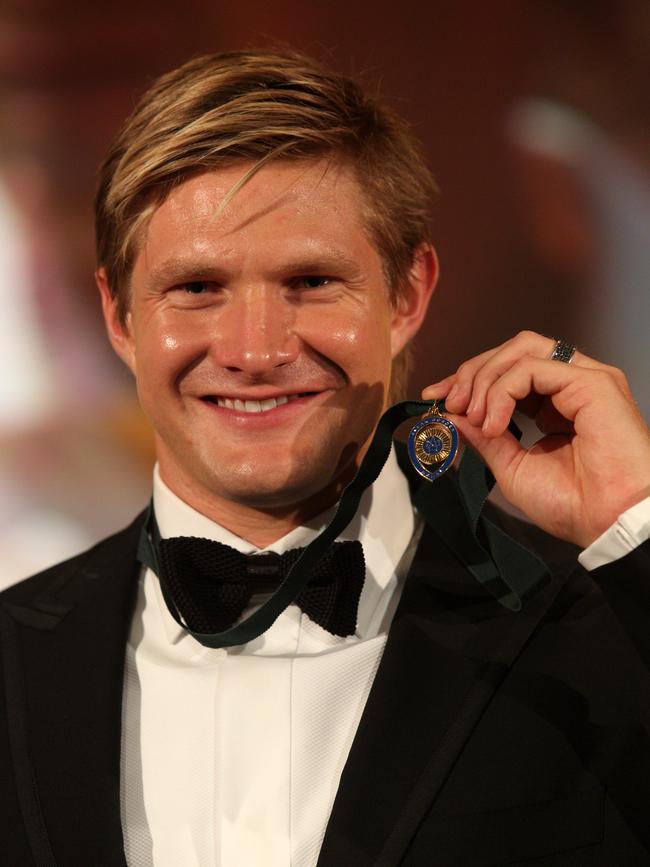
Watson is chatting with us from hishome office in Sydney, where he lives with wife Lee Watson – an accomplished sports presenter and writer – and their two children, William, 10, and Matilda, 8. The family has just returned from a quiet beach holiday on the NSW south coast in December, taken at the same time that Australia opened the summer of cricket against Pakistan.
It was a busy year for Watson. He spent two months as assistant coach of the Delhi Capitals under Ponting, took on his first head coaching role in Major League Cricket in the US, and was a commentator during the ICC Cricket World Cup in India, which meant another seven weeks away from Lee and his children.
So, it was important to spend time at home, to go to the beach with his family and cook together – they love trying new recipes. Matilda is a particularly keen baker and helps her dad make pizza dough, hopefully followed by something sweeter.
“She loves cupcakes. Any chance she gets, she loves baking. She’s very helpful and absolutely loves it,” Watson smiles.
“It’s been an awesome year. I’m in this next phase of life just discovering what I love doing and then being able to channel my time into getting better at it.
“But there were some big stretches of time away, so that’s why school holidays – even though it is cricket season here in Australia – it’s so important to ring fence the summer holidays … because that’s the quality time I can really make the most of.”
His mental skills training has also changed how he acts as a father and husband, learning the importance of offering his full attention in the moment, without letting his mind wander into cricket.
Needing to prioritise his time, Watson stood down as president of the Australian Cricketers’ Association in November, after 10 years on the board and four as president.
“I got educated on being a players’ advocate since I came into domestic cricket in Australia,” he says.
“So (joining the board) was a way for me to give back … and continue on the legacy I was fortunate enough to be handed when I first started in my late teens.
“But I knew it was my time to let some fresh people in to do it, and hopefully things will grow in the mental skills coaching side of things, because that is really where I get the most joy.”
It’s an ambition that might lead Watson, who is well respected in cricketing ranks, to put his hand up to coach Australia one day.
“(Current coach) Andrew McDonald is doing an incredible job with the Australian team and the squad,” he says.
“That would be the ultimate for sure – to be able to help create the team environment you always dream of being a part of with the Australian team. For me right now though, with where my family life is, I don’t know how any of the Aussie coaches over the last 10 years or so have been able to do it. That’s why other coaching opportunities that are shorter periods of time fit in perfectly with my life at this point.
“I’m able to continue to develop my coaching skills without putting the huge burden on my family.”
In his office, alongside rows of books and a framed wedding photo, a large portrait hangs. It is a black and white image of Watson celebrating with fellow batsman Steve Smith at the crease when Australia won the ODI Cricket World Cup in 2015.
“I got a painting done of it,” Watson explains, adding he doesn’t have any other cricket memorabilia. “It’s the most special moment of my career, so it’s the only thing I’ve got up in my house.”
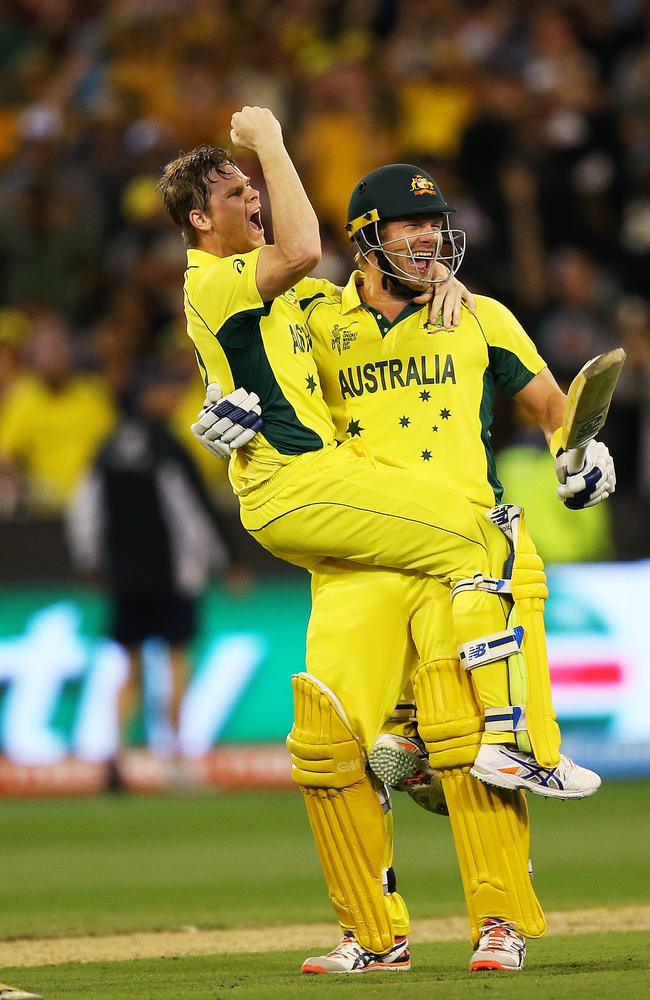
It was a significant year in Watson’s life in many ways. His results had been declining and the media scrutiny was deafening. He felt the Australian team had “drifted significantly” since the retirements of Ponting and Mike Hussey. There was a new-found pressure to perform that left many players looking over their shoulders amid a threat of losing their spot, and their livelihoods along with it.
The tragic death of batsman Phillip Hughes in late 2014, after being struck by a cricket ball, was a monumental shock. Watson struggled to talk to Lee or even play with his son Will, a toddler at the time, as he contemplated his future.
“That was probably the toughest time in my life,” Watson recalls. “I was 34, I still felt I had a lot of good cricket in front of me, but I just could not perform. I felt like I’d lost my skills, especially against fast bowling, so I got to a stage where I was in no man’s land.”
Dropped from the Test team and one-day cricket soon after, Watson felt desperate for answers to his mental demons.
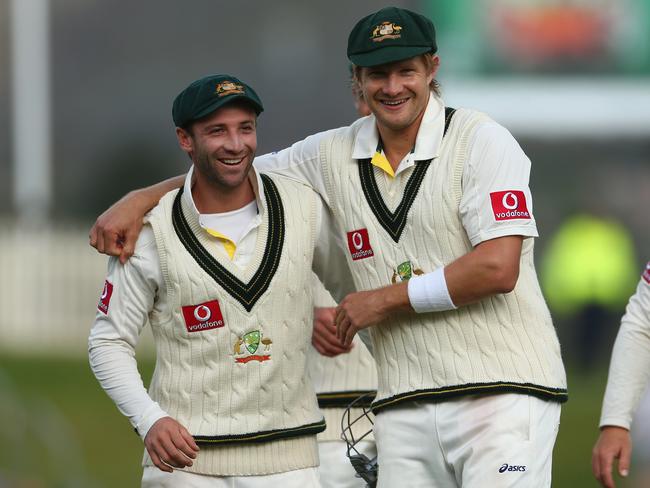
At the NRL’s Dally M awards night that year, he met Australian IndyCar champion Will Power, who shared that he had also been shaken by a death in the sport and recommended Watson talk with Dr Dallaire.
So Watson flew to the US – to Charlotte, North Carolina – to meet with Dallaire, a world-renowned expert on mental preparation.
“I had absolutely nothing to lose,” Watson explains. “I always wanted to get into coaching; I wanted to help people from the experiences I had, so even if I could use that information to help people in the next phase of my life then it was worth every cent.
“My wife knew I was really struggling as well about where my life was at and what I was going to do. And I knew I needed to get some assistance from someone outside of cricket. It helped me understand the high-performance mindset and even how high-performing people sabotage themselves.
“Once I understood that, it was within an hour of being in Charlotte that I knew I could turn things around.”

Over the next four years, Watson puthis new skills into action, becoming endlessly curious about the mindsets of those around him – asking teammates what they were thinking before a dismissal rather than about the shot they missed.
He learnt about Ponting’s rituals, the way he would clean the crease – his “office” – and Hayden’s visualisation practices. He discovered Border’s deep breathing to conserve mental energy, while McGrath and Clarke both sang songs in their heads to reset their minds between balls, helping them concentrate longer.
Watson was named T20 International captain in 2016, becoming one of the few Australians to captain in all formats. It was the third game against India in Sydney. He was opening the batting and bowling crucial overs. He sang songs in his head, a country tune by Thomas Rhett, and smashed 124 not out from 71 balls.
“There was always a bit of country, a bit of Keith Urban. I wasn’t over-revving too much with a Guns N’ Roses ‘Welcome to the Jungle’,” he laughs. “Even how I captained, everything was very different to how I did previously.”
Watson felt his mind transform in those last years of his playing career, and the burden he had placed on himself lifted. He became determined to integrate the mental skills knowledge into his coaching ambitions.
He watches the Australian side now, the relentless media cycle and pressure, and marvels.
“The media side of things is always going to be there and it’s a great thing because it builds up the game of cricket in Australia and around the world,” he says.
“The biggest challenge for the players involved in the games and who want to perform at their best, is to shut all that out. Some other people, it can unravel.
“Watching guys score runs and fly through the 90s, guys like Dave Warner or Usman Khawaja, I’m just so happy they’ve discovered what works for them and consistently do it because I didn’t discover it at that time.
“If I had this information when I was younger things would’ve been … different for sure, but then I wouldn’t have gone through my career and to this point.
“Now has just been my time to make the most of that.”
Whether that will lead to coaching Australia, or contributing to the game in other ways, he isn’t sure – Watson isn’t letting his mind race quite that far ahead.
Originally published as Shane Watson opens up about his mental battles as a cricketer


